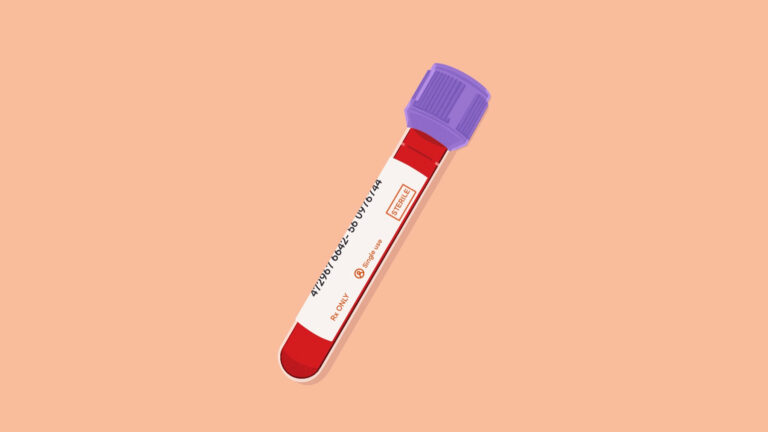Just a year after going public, F45 Training is the target of a take-private buyout.
Warm-up
Founded in 2013, Australia-born F45 Training is a HIIT studio franchisor. Engineered for growth, it boasts nearly 2K open locations across 68 countries.
IRL x tech. As its name suggests, F45 offers functional, high-intensity classes that are 45 minutes in length.
Putting a boutique spin on CrossFit-style workouts, the experience was designed to be more affordable than personal training and more engaging than single-modality studios (like cycling or yoga), all while tapping into the community element of group fitness.
But, in the company’s telling, its tech is the true differentiator.
Defining its competitive strengths, Innovation is listed as the first pillar of success. A turnkey system, F45’s “centralized delivery platform” beams instructive fitness content to in-studio TVs. And its “proprietary programming algorithm” ensures that no two workouts are the same.
“F” is for Franchise
F45’s business is based almost entirely on franchising.
Signing up, franchisees pay an initial ~$350K for naming rights, equipment fees, and studio buildout. Recouping that investment, the company says most units are profitable in six months and studios are breakeven at 75 members.
Driving revenue and fueling expansion, F45 collects some fees upfront, well before new gyms open their doors. Critical components of its investor pitch and long-term trajectory, achieving rapid, global scale was a necessity.
Going for growth. Ahead of its July 2021 IPO, then-CEO Adam Gilchrist laid out a vision for opening more than 23K studios worldwide, including 7K in the US alone.
Besides signing international franchisees, the company was setting up studios on US military bases, university campuses, and cruise ships, as well as in hotels and office buildings.
Expanding its portfolio à la Xponential Fitness, F45 was also developing new modalities, like women-focused Avalon House, Pilates-centric FS8, and guys-only Malibu Crew. Plus, it acquired Flywheel Sports’ IP with plans to resurrect the indoor cycling brand.
Banking on a post-pandemic gym boom, F45 raised $279M in its public offering, briefly valuing the company north of $1.4B.
Cash Crunch
From the floor of the NYSE, Gilchrist reiterated his growth ambitions:
“We want to be the world’s largest franchisor. We want to sprint past Planet Fitness and be bigger than McDonald’s.”
Reporting Q1 2022 earnings in May, everything seemed to be on plan, leading Gilchrist boost guidance for unit sales to 1,500. Of note, at that time, the company said it had already signed 706 new franchises.
But by June, the outlook soured as F45 slashed full-year projections, laid off 45% of its HQ staff, and parted ways with Gilchirst. The company now hopes to sell 350 franchises this year, earning $120–130M in revenue, down from estimates of $255–275M.
Part of the problem, the collapse stemmed from a backlog of unopened studios and a cancelled credit facility meant to fund them.
In March, Gilchrist said 2.2K of the 4K sold franchises had not yet opened. A lifeline, Fortress Investment Group committed up to $300M in off-balance sheet financing to fund startup costs for new franchises.
However, as F45’s stock price declined amid mounting economic uncertainty this spring, the financing evaporated, erasing hundreds of potential studios and millions in revenue.
Zooming out: While many questions remain unanswered, the disconnect between franchise demand, new studio openings, and sustainable business results ultimately hindered F45’s performance and prospects as a public company.
With its share hovering $3.25 and a market cap of $312M, last week’s buyout offer from Kennedy Lewis Investment Management of $4 per share ($385M) could sway F45’s board.
Meanwhile… Complicating matters for F45, the fact that competitors—like publicly traded rivals Planet Fitness, Life Time, and especially Xponential Fitness—have forged ahead signals specific operational blunders, not a secular trend.
🛒 Special Delivery
Americans can’t put a price on healthy food, or convenience.
On the Fitt Insider Podcast: Thrive Market co-founder and CEO Nick Green discusses his membership-based ecommerce platform for natural and organic food.
We also cover: tech-enabled personalization and trends in holistic well-being.
Listen to today’s episode here
🛶 Rival Rowers
Connected rowing is getting increasingly competitive.
For context: Innovating on Concept2’s analog erg, Hydrow’s sleek at-home machine validated the market beyond smart bikes and treadmills.
Making its long-awaited debut, Peloton’s rower is set to ship this holiday season.
gROWth. Adding to the ongoing rowing wars, recent developments point to more growth to come.
- Fiit, a UK-based digital fitness platform, partnered with Concept2, syncing the brand’s rower to content and leaderboards.
- UK-based studio concept ROWBOTS merged with Rowcave, an immersive rowing product with esports ambitions.
- Ergatta recently began selling its gamified rowing machine in the UK and Ireland.
- Israel-based Roweron opened pre-orders for its hardware/software bundle transforming any erg into a connected rower.
Selling point: Even as the connected fitness market cools, rowing brands are touting highly effective, low-impact workouts to attract time-strapped fitness seekers.
Head-to-head. In February, on the Fitt Insider Podcast, Hydrow CEO Bruce Smith told us stationary exercise bikes are “a really hard thing to sell.”
With Peloton moving in, Smith said his company takes “full credit” for its rival’s debut, adding:
“rowing is going to replace indoor cycling as exercise over the next few years.”
Not without challenges of its own, Hydrow laid off 35% of its workforce in July after closing a $55M investment a few months earlier.
Looking ahead: Most people aren’t familiar with rowing for fitness, so the entire category will benefit from the added attention. Meanwhile, as Peloton expands its hardware portfolio despite more companies syncing content with any device, it will be interesting to see how single-modality equipment makers like Hydrow fare.
Share this headline
📲 Digital Biometrics
Personalized health data promises to revolutionize well-being.
The latest: Spren, a software developer using a smartphone’s camera to analyze digital biometric data, closed $11.3M in a seed round led by Drive by DraftKings.
Spren’s tech claims to accurately read heart rate variability solely from a user’s fingerprint over the phone’s camera. Additionally, the platform uses computer vision to measure BMI and plans to extend its capabilities to other metrics.
Offering third-party integrations for a wide variety of health and fitness apps—including Fitbod and FORTË—Spren hopes to help users manage everything from stress and recovery to mental and physical performance.
Why it matters: Around 30% of Americans own a wearable device, yet national levels of physical inactivity are sky-high. A dilemma, while new research suggests wearing a fitness tracker can nudge you to exercise more, they’re still not ubiquitous — and not everyone necessarily wants one.
That leaves untapped avenues for reaching more users, including prescribing hardware or, in Spren’s case, bypassing it altogether.
Takeaway: Spren’s signature HRV product follows the stress-related use cases championed by WHOOP and Oura. But, its interoperability and ease of use put it on a path to intersect with the clinically validated ecosystems of Withings and (most recently) Garmin.
Share this headline
📰 News & Notes
- ButcherBox enters retail.
- FTC walks back antitrust suit against Meta.
- Plant-based meat has a perception problem.
- Fitt Jobs: the top companies in health & fitness are hiring!
- Weight loss app Noom is reportedly searching for a new CEO.
- Ex-NBA great Steve Nash launches training app for athletic longevity.
- Garmin unveils jet lag management function for luxury watch collection.
- Beachbody introduces a content, smart bike, and fitness accessory bundle.
- Startup Q&A: NutriSense’s Dan Zavorotny on using CGMs for lifestyle change.
💰 Money Moves
- onX, makers of outdoor digital navigation technologies, added $87.4M in a Series B round led by Summit Partners.
- Digital biomarker startup Spren closed $11.3M in a seed round led by Drive by DraftKings, with participation from Eli Manning and others.
- Rockley Photonics, manufacturer of sensor technology for wearables, added $10M in financing.
More from Fitt Insider: Glucose Monitoring Gets an Upgrade - Arcascope, a circadian rhythm management platform, secured $2.85M in a seed round led by Supermoon Capital.
More from Fitt Insider: The Sleep Economy - Digital root cause telemedicine platform Index Health raised $6M in a funding round.
- Northwind, a teledermatology platform, landed $1.4M in a seed funding round.
- Crunch Fitness franchisee Fitness Ventures LLC acquired four Crunch locations in Louisville, KY.
- UK-based psychedelic therapies research firm Clerkenwell Health raised £2.1M ($2.32M) in a seed round.
More from Fitt Insider: Psychedelics as Medicine - Brave Health, a digital mental health platform for Medicaid recipients, raised $40M in a Series C round led by Town Hall Ventures.
- Digital ADHD coaching app Shimmer added $1.3M in seed funding from Y Combinator, Gaingels, and others.
- Elder, a UK-based eldercare platform, raised £20M ($22M) in a funding round.
Today’s newsletter was brought to you by Anthony Vennare, Joe Vennare, and Ryan Deer.






